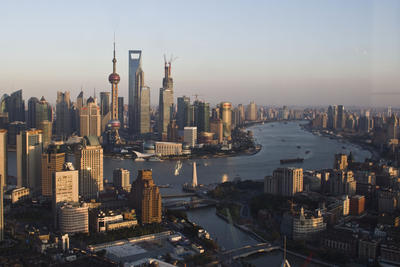Over the period 2001–12, China regularly contributed between one-quarter and one-half of world economic growth. If the Chinese economy maintains an average of 7 per cent growth in the coming years, it should overtake the United States to become the largest economy in the world before 2020.
The Asian century could be the first time in human history when world affairs are managed collectively by a group of countries at different levels of development and with different political regimes. The new reality is that developing countries will have a significant say on issues of global governance issues. Collaboration between China and the United States should form the centrepiece of the future coordination mechanism for the world economy, although most parties involved are sceptical about the proposition of a formal China–US (G2) arrangement.
China’s rise as one of the global economic leaders poses significant challenges for both China and the rest of the world. China will need to introduce reforms to improve its transparency and the predictability of its decision process. Its leaders will also need to adapt to the new ways in which the world reacts to it. As a large economy, whatever China does could affect the world economy significantly and invite responses from the rest of the world. For instance, today China already accounts for 11 per cent of the world’s total exports. Continuous rapid expansion of Chinese exports could force significant structural changes in other countries. This is perhaps why China is already the world’s number one target country of trade disputes and sanctions.
But the world may also need to accept China as a new global player. Despite the expected reforms, China is still an emerging market economy and won’t become a Western-style democracy any time soon. Even if China does become the world’s largest economy before the end of the decade, its GDP per capita will only be a little over US$10,000 — less than one-third of that in the United States and Japan. But the income level and political system should not prevent China from becoming a responsible global economic leader. China’s participation in the G20 and other international dialogues should be helpful steps in redefining the relationship between China and the world economy. The recent agreements reached by China and Australia, on annual top-level dialogue and renminbi convertibility, among others, are good examples of such cooperation. If Australia could work with China, so could the other developed and developing countries.
Regardless, China will likely play a significant role in transforming the world economy in the coming decade, especially as its own growth model evolves. That growth model may be characterised as one of strong economic growth and serious structural imbalances during the first three decades of economic reform. This was caused primarily by the asymmetric liberalisation approach taken during the reform period — product markets have been almost completely liberalised but factor markets have remained under significant distortions. The generally depressed costs of capital, energy, water, land and labour serve as a special mechanism subsidising the corporates but taxing the households.
As a result, China became one of the dominant contributors to world economic growth and a source of global disinflation. It nearly monopolised the labour-intensive manufacturing industries, making it difficult to find low-cost consumer goods not made in China. It also single-handedly fuelled the so-called ‘super-cycle’ of the commodity markets.
But all this may change now. Following recent increases in costs of production, especially cost of labour, the Chinese economy is already in the middle of the transition from ‘economic miracle’ to ‘normal development’. China’s trend growth has probably already shifted to the 6–8 per cent range, down from 10 per cent, accelerated by rapid demographic change. In the meantime, economic structure has also started to improve, shown by a narrowing current account surplus, rising consumption share of GDP and improving income distribution. Transition of the growth model has just started and could lead to slower growth, higher inflation pressure, improved income distribution, more balanced economic structure, accelerated industrial upgrading and more volatile economic cycles.
These changes will also affect the world economy significantly. China may quickly shift from a source of global disinflation to one of global inflation. It should force new international divisions of labour, by rapidly losing labour-intensive industries and moving up the value chain. Its demand for commodities should slow as GDP growth decelerates and investment share of GDP edges down. But consumption should expand more dramatically, as a result of continued growth and rebalancing, making China the most dynamic consumer market. Slower but better-quality Chinese growth would support more sustainable expansion of the global economy in the Asian century.
Yiping Huang is Professor of Economics at Peking University and at the China Economy Program, Australian National University.
This article appeared in the most recent edition of the East Asia Forum Quarterly, ‘Coming to terms with Asia’.

